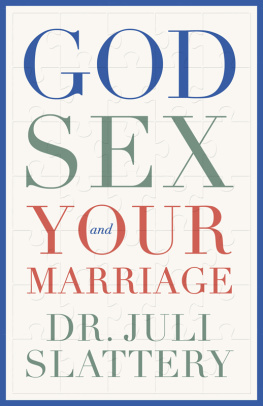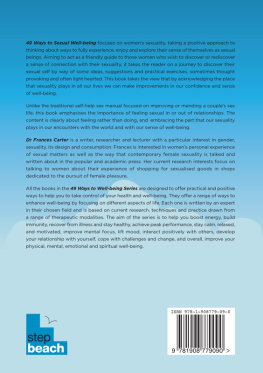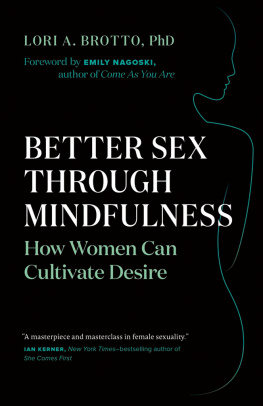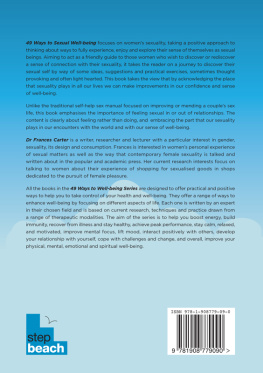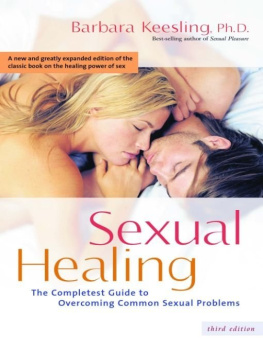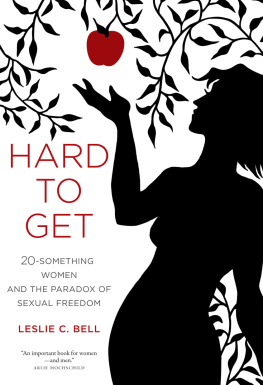Library of Congress Cataloging-in-Publication Data
Montemurro, Beth, 1972
Deserving desire : womens stories of sexual evolution / Beth Montemurro. pages cm
Includes bibliographical references and index.
ISBN 9780813570228 (hardcover : alk. paper) ISBN 9780813564395 (pbk. : alk. paper) ISBN 9780813570242 (e-book)
1. WomenSexual behavior. 2. WomenPsychology. 3. Self-acceptance. I. Title.
HQ29.M653 2014
306.7082dc23 2013046604
A British Cataloging-in-Publication record for this book is available from the British Library.
Portions of Chapters 4 and 5 appeared in the article Getting Married, Breaking Up, and Making Up for Lost Time: Relationship Transitions as Turning Points in Womens Sexuality, Journal of Contemporary Ethnography, 43(1) (February 2014): 6393.
Copyright 2014 by Beth Montemurro
All rights reserved
No part of this book may be reproduced or utilized in any form or by any means, electronic or mechanical, or by any information storage and retrieval system, without written permission from the publisher. Please contact Rutgers University Press, 106 Somerset Street, New Brunswick, NJ 08901. The only exception to this prohibition is fair use as defined by U.S. copyright law.
Visit our website: http://rutgerspress.rutgers.edu
First, I would like to offer my deep and sincere gratitude to the ninety-five amazing, dynamic, and diverse women whose stories made this book. I hoped that others would share my curiosity about changes in womens sexualitybeyond changes in sexual behaviorover the course of their lives. I was pleasantly surprised to find very many women who thoughtfully and generously volunteered their time and spoke with me about such a personal topic. I thank them all, truly, for sharing secrets, opinions, and pieces of their lives with me. And I am especially grateful to those who encouraged friends, mothers, daughters, or co-workers to participate as well. Several women spurred extensive chains of contacts, and I thank them for that.
I also recognize the many friends, colleagues, and family members who eagerly spread the word about my research and helped me recruit interviewees. My mother, Susan Montemurro, told everyone she knew over the age of thirty about the book and facilitated many contacts. Family members Madison Saurman, Christina Montemurro, Mary Montemurro, Lois Saurman, Kari Lupo, and Chris Riemer also helped to spread the word among potential interviewees. I thank my friends, who cheered me on and talked through research ideas with me. In particular, I thank Diane Saccone and Kim Maialetti, who each recruited several interviewees.
My colleagues at Penn State Abington really supported my work. Some volunteered for interviews; others offered encouragement. I am particularly indebted to Meghan M. Gillen, who eagerly and tirelessly read chapter drafts and offered both reassurance and helpful feedback. I thank Karen Halnon, my sociology compadre, for not only inspiration but also a pivotal conversation that led me to create concrete phases in the development of sexual subjectivity. And I recognize colleagues from my graduate school days, including Jim Dowd, whose work and thoughts helped me shape my chapter on aging and sexuality, and Joya Misra, who has a unique ability to reinvigorate my enthusiasm in my work and who, along with Diane Saccone, Ivy Ken, Don Riemer, and Kaya Van Beynen, helped me find the right title for this book. My work was very generously supported by several grants from Penn State University, all of which helped accelerate the pace of data collection and analysis by funding travel and transcription costs, among other things. For two years, I received the Career Development Professorship from Penn State Abington, which made a world of difference in my research progress. I also received a grant from the Rubin Fund, which supported travel to conduct interviews, and two faculty development grants, which supported wages for a research assistant in the summer, data analysis software, and professional transcription of interviews.
I was fortunate to have a number of excellent undergraduate research assistants who were supported by the Abington College Undergraduate Research Activities program. Allison Cooper helped organize demographic information and recruit interviewees. She also conducted and transcribed four interviews with women in their twenties. Beth Bleming assisted with data analysis and helped me figure out the nuances of Nvivo, and together we began microanalysis of the masses of interview data I had collected. She was also a huge help in maintaining momentum while I was on maternity leave. Jenna Marie Siefken not only helped immensely with coding but also crafted sexual development summaries. Additionally, she analyzed and wrote about interview data that would not fit into the narrative of the book. Even after graduation, Jenna maintained an interest in the project, which I sincerely appreciate. I would also like to recognize Susan Tomko for her fast, accurate, excellent transcription work.
Additionally, I would like to thank the staff at Rutgers University Press. It is nice to have the opportunity to work with this great group a second time. I thank Peter Micklaus for believing in this project in its early stages. I am also quite grateful for the amazing copyediting work of Dawn Potter, who made this book more accessible and helped find the right ways to clarify my ideas and my interviewees stories.
Finally, thanks to my family for always supporting, encouraging, and understanding. Madison and Kate, your smiling faces at the end of a writing day meant the world. Thanks again to my mom for help with reference checking and indexing and to everyone else who made it possible for me to focus on this project and inspired me to keep at it.
Introduction
I dont think Ive ever really sat there and thought... what does sexuality mean to me? I think in society, unfortunately, our sexuality is defined negatively.... When I just think of print ads and music videos and music, I dont think were given enough opportunity to become comfortable and figure out what that actually means to us. I think society does play a big role in actually defining it for us. My mother never really sat down and had a talk about how my sexuality would play into me becoming a woman. Never had that conversation, so I had to kind of figure it out on my own. So I guess if I had to give you a definition, it would be hard for me to do because no ones ever really... no ones asked me.
Monica, age thirty-five
Monica is an attractive, bright woman from a large northeastern city. She is a married, African American mother of two young children who works full time in the field of education. When we met to talk about the evolution of her sexuality, Monica confessed that, in college, she lied to friends about having had an orgasm. She did not know what it felt like to climax, so she just laughed along with friends when the subject came up. Her parents never talked to her about sex, nor was it something she discussed openly with friends. Recalling her sexual feelings as a young adult, she said, It was so awkward because I didnt really know. I really wasnt comfortable with my sexuality. I didnt really know about my desires at that point. Its like youre young and you really dont know about yourself and about your body.


